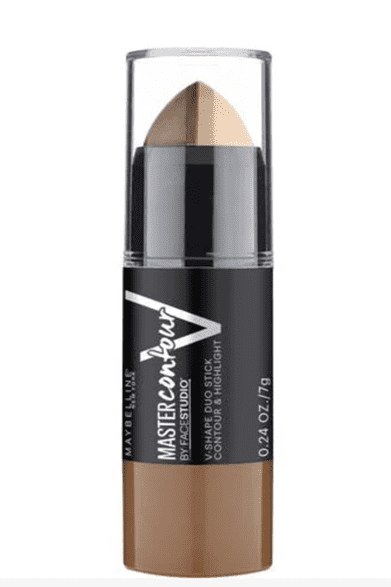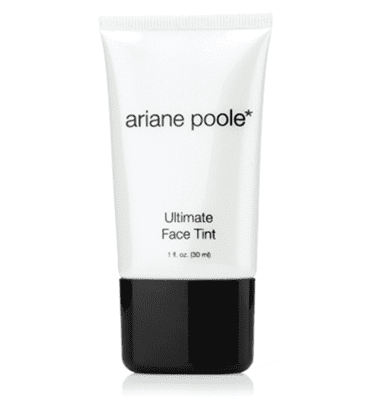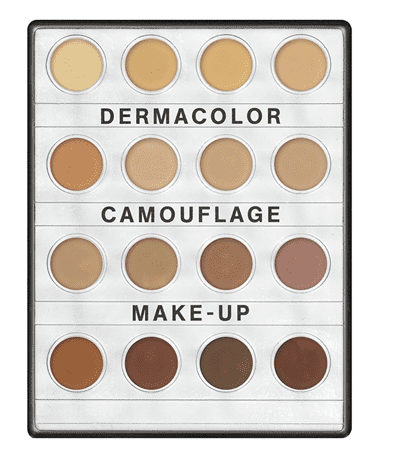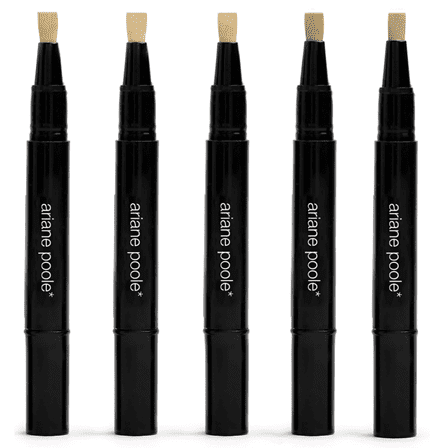Well, fall may have its fingers firmly wrapped around us, but that doesn’t stop us from experimenting with makeup. Today we will focus on two topics that we get tons of questions about – concealers and contouring products.
In addition to the demo, we will also share a few great selections, such as the Maybelline Facestudio Master Contour Duo Stick.


When to Use Concealer
To be clear, if you have rosacea and age spots and could care less about them, there is no inference you have to cover them up. More often than not, we are the ones deciding whether something is an imperfection.
As Sixty and Me friend and makeup artist Ariane Poole says, “No-one sees your flaws except you.” If you wear concealer, it should only be about making yourself more comfortable. Makeup is not to hide anything, it’s to switch on a light inside of you to negate any fear you might have.
Makeup after 50 is about having fun and experimenting with new looks and certainly not about looking a certain way to please others!
The First Step in Makeup for Older Women
The first step really depends on the season. It’s important to make sure your skin is always well moisturized; however, it’s even more critical if you live in a harsh climate or it’s the middle of winter.
Moisturizer will be the first step in any routine for makeup after 50, and Ariane follows this with her Ultimate Face Tint.


If you are looking for heavier coverage, you can use a foundation instead, although Ariane recommends using clay-based foundations for oilier skin types, and avoiding creamy foundations. It’s always important to invest in a foundation that suits you best – as the name suggests, it forms the basis of how the rest of your makeup will sit on your skin!
The Tougher Spots
For some of us, a good face tint or foundation will be enough to do the trick. However, age spots and pigmentation can be a little tougher to cover up and will need some more effort.
Ariane recommends investing in a concealer palette that has many different colors in the same tone as they can be used to cover up spots or marks of different colors. Ariane uses the Dermacolor Camouflage Creme Mini-palette with a concealer brush, mixing the different colors to find the right shade to dab over these stubborn spots.


Go Easy on the Eyes!
Most of us are aware that the eye area is delicate, and more care needs to be taken when applying cosmetics or creams. Due to the thinner skin in this area, concealer tends to be too heavy, leading to creases in folds – something we avoid in makeup for older women!
To get around this, Ariane recommends using a lighter concealer product with brightening or highlighting factors such as a mineral illuminating pen. Using a color that is close to your skin tone, you can even apply it gently to your upper eyelids instead of eyeshadow, and it will have a brightening effect!


Shades of Concealer for Different Purposes
One important point that Ariane mentions is that the word “concealer” covers a broad area of makeup, from foundations to pimple coverings.
When using a concealer for under the eyes, you need a very lightweight product and, luckily, most concealers sold today are very different from the ones we used to purchase 40 years ago. Nearly all concealers today are rich, yet sheer.
For those with the common blue/grey undertones that give the impression of bags under the eyes, a peach colored concealer will work wonders. It might look strange when you first put it on, but you will be amazed at how well it covers the area.
When it comes to other areas, such as hiding red cheeks, the concealer should match your skin tone as much as possible. In the past, experts suggested using concealers that were one or two shades lighter, but that was when most women applied concealer under their foundation. Today’s improved products mean that the concealer should go on top of your foundation.
The only exception to the above rule is for those who have a very white tone around and underneath the eyes. This is common among women who have worn glasses most of their lives. Going one shade darker is Ariane’s suggestion. While this sounds counter-intuitive, she insists that you will love the way it works!
Which Concealer to Use for Hiding Puffy Eyes
Ariane says that you need to remember to apply your foundation before you add the concealer, so you don’t end up removing most of the concealer. For hiding puffy eyes, you can use a concealer that is one shade darker than your skin tone. Again, this sounds a bit wild, but it actually works.
Concealers generally come in a liquid form or very soft, creamy sticks. Both work fine, and regardless of which product form you choose, it needs to be very light, velvety, and easy to apply.
Stop Putting Your Concealer on First
We can’t stress the importance of applying your concealer after your other layers. Because concealers are lighter than they used to be, we have a tendency to rub them off if we apply them before everything else.
When It Comes to Finding the Best Concealer for Older Skin, One Size Does Not Fit All
It’s good to remember that there are different concealers for different purposes. Some concealers are great for hiding blemishes, high coloring and pigmentation. On the other hand, if you want to use a concealer under your eyes, you may want to consider a mineral pen, which is much lighter weight.
Use Enough Concealer to Make a Difference
Ariane explains that many women are nervous to use a generous amount of concealer. She encourages us not to be shy when it comes to applying this makeup product. As she explains, you really want to use enough to make a noticeable difference.
When it comes to concealer, is there specific advice that you need? Have you recently discovered any new, fabulous makeup products? What do you think are the keys to finding great makeup for older women?












